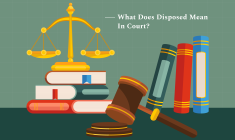Buying a home is a big step—maybe one of the biggest decisions you’ll ever make. And in Spruce Grove’s busy real estate market, things can move really fast.
But before you sign any papers or hand over your money, there’s one thing you must understand: your real estate contract.
A real estate contract is a legal document. That means once you sign it, you’ve made a promise that the law will hold you to. This contract includes all the important details of your home purchase—like the price, what’s included, and what happens if something goes wrong.
Even a small mistake or misunderstanding can lead to big problems later. That’s why it’s smart to ask a Spruce Grove law firm to help you review the contract before you sign anything.
In this article, I am planning to explain all of that so that you (yes, YOU) do not get into legal troubles. And if that’s what you want to know, you have come to the right place!
So, keep reading till the end…
What Is A Real Estate Contract?
A real estate contract is a written agreement between the person buying a home (the buyer) and the person selling it (the seller). It says:
- How much the home costs.
- When the buyer will take possession.
- What’s included in the sale (like kitchen appliances or light fixtures).
- What happens if the deal falls apart.
In Alberta, most people use a standard form called the Residential Purchase Contract. This contract was created by the Alberta Real Estate Association (AREA). It’s a useful starting point, but it doesn’t cover every unique situation.
Once both sides sign this document—and all the conditions (like mortgage approval or home inspection) are met—it becomes legally binding. That means you can’t back out easily without serious consequences.
So remember: A real estate contract isn’t just “paperwork.” It’s a powerful legal promise. And if something in the contract doesn’t look right or you don’t understand it, a real estate lawyer in Spruce Grove can help protect your rights.
What Should You Keep In Mind About A Real Estate Contract?
There are several things that one must keep in mind
1. The Real Estate Purchase Contract Is Legally Binding
| Type of Promise | Can You Back Out? | Possible Consequences |
| Verbal handshake | Yes | Minor or no legal trouble |
| Signed real estate contract | No (after conditions) | Loss of deposit, legal action |
Firstly, you need to understand that this is a real contract that is legally binding. Which means, breaking it can get you into legal problems.
- Once signed and conditions are removed, the contract cannot be undone easily.
- Changing your mind after this point could cost you your deposit—or even get you sued.
- Always have a lawyer review the contract before signing.
- Make sure every clause makes sense to you.
2. Pay Attention to Conditions
Secondly, it is important that you pay attention to the conditions. Also known as “subject to” clauses, these conditions provide protections for buyers. If certain things don’t happen, you can cancel the deal without penalty.
Common buyer conditions that you must keep in mind:
- Financing: Only buy the house if your mortgage is approved.
- Home Inspection: Buy only if the inspection shows no serious problems.
- Sale of Your Home: You agree to buy only if you sell your current home first.
These conditions should have deadlines. For instance, if the deadline passes and things aren’t done, the deal can fall apart—or worse, you may still be stuck in a bad contract.
| Condition Type | What It Means | Deadline Example |
| Financing | You need a mortgage | Within 10 business days |
| Inspection | You want a clean home report | Within 7 business days |
| Sale of buyer’s home | You can’t afford two homes at once | Within 30 calendar days |
3. Know What’s Included and Excluded
Thirdly, don’t assume everything you see in the house comes with it. If it’s not written in the contract, it might not be yours!
Here are the examples of common inclusions/exclusions:
Inclusions:
- Kitchen appliances
- Washer/dryer
- Window blinds
- Hot tub
Exclusions (if not listed):
- Seller’s fridge
- Shed in the backyard
- Curtains
Rule: List everything clearly. Use brand names and locations. For example. Here is something that you can do: “LG Refrigerator in kitchen” or “Samsung washer in basement.”
| Bonus Checklist: Include These If You Want ThemAll appliancesCurtains/blindsLight fixturesGarage remotesBackyard playsets or sheds |
4. Understand the Deposit and Penalties
When your offer is accepted, you’ll usually need to pay a deposit. This money is held by a lawyer or agent in a trust account. It shows you’re serious about buying the house.
But here’s the catch:
- If you back out without a good reason, you could lose your deposit.
- If the seller backs out, you might be able to sue for damages.
Here are a few things related to the deposit that you should know:
| Term | What It Means |
| Deposit | Money you put down to show you’re serious |
| Held in Trust | A lawyer or agent keeps it safe until closing |
| Forfeited Deposit | You may lose it if you break the contract |
| Breach of Contract | The other party may take legal action |
5. Get Legal Review Before Removing Conditions
Once all your conditions are met and removed, the deal becomes firm. That means you’re fully locked in.
A lawyer will help you:
- Read the land title (to see who really owns it)
- Check for liens or debts against the property
- Look at zoning rules or restrictions
- Make sure the legal description matches what you’re buying
In Spruce Grove, where homes may have unique land history or zoning quirks, this legal review step is very important.
6. Understand Possession Terms and Final Walkthrough Rights
Finally, you need to understand the possession terms. But what’s that?
Possession Date is basically the day you officially get the keys and own the home. This is usually written in the contract.
But here’s what could go wrong:
- The seller is still in the house
- The place is dirty or damaged
- Some inclusions are missing
Ask if your contract allows a final walkthrough. This lets you check the home before possession to make sure everything is still as expected.
| Final Walkthrough ChecklistAll agreed-upon items are still there.Home is clean and undamaged.No new holes, water leaks, or missing appliances.Utilities are working. |
Your Legal Guide: Things To Keep In Mind When Signing A Real Estate Contract
Buying a home in Spruce Grove should be exciting—not scary. However, real estate contracts are serious legal documents, and signing without understanding them is a risky proposition.
Here are some of the things that you must keep in mind:
- Don’t sign anything until you understand every part of the contract.
- Include clear conditions to protect yourself.
- Don’t assume items are included—write them down.
- Get a legal review before removing conditions.
- Know your walkthrough rights and understand the possession date.
A local real estate lawyer can help you avoid surprises and protect your investment.
Read More:
















